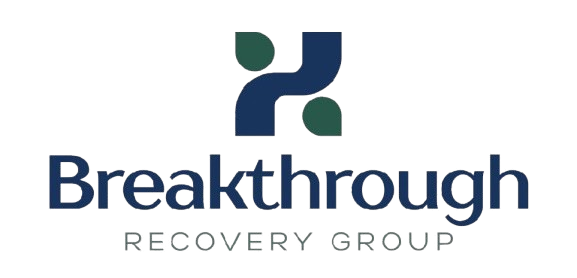
Choosing a Center for Rehabilitation in Spokane
In Spokane, navigating the maze of options for addiction treatment and rehab centers can be daunting. Yet, understanding the diverse offerings provides a foundation upon which individuals can embark on a journey of recovery. Spokane’s rehab centers offer a variety of services tailored to different needs, ensuring that help is available for anyone seeking it.
Rehabilitation in Spokane isn’t just about addressing the physical aspects of addiction. It’s a holistic approach that encompasses mental, emotional, and social dimensions. The centers here are designed to provide integrated care that acknowledges the complexity of addiction.
Exploring Therapy Options for Rehabilitation
Therapy forms a cornerstone of rehabilitation efforts in Spokane. Different therapy modalities are employed to cater to varied addiction profiles. These include cognitive-behavioral therapy (CBT) and dialectical behavior therapy (DBT) among others. These techniques aim to equip individuals with tools to modify destructive behavior patterns.
Cognitive Behavioral Therapy
Cognitive-behavioral therapy focuses on changing unhelpful thinking and behaviors. In Spokane, therapists integrate CBT into treatment plans by helping clients identify and challenge their negative thought patterns. The therapy is structured, goal-oriented, and it often empowers individuals by providing specific skills that support long-term recovery.
Dialectical Behavior Therapy
Dialectical behavior therapy is another powerful tool available in Spokane’s rehab centers. DBT combines standard cognitive-behavioral techniques for emotion regulation and reality-testing with concepts of distress tolerance, acceptance, and mindful awareness. This therapy is particularly effective for clients who struggle with emotional regulation and interpersonal relationships.
The Role of Family in Rehabilitation
The journey to recovery does not occur in isolation. Family involvement is a crucial element of successful rehabilitation outcomes in Spokane. Rehab centers encourage family therapy sessions which foster open communication and healing within family systems.
Family support can make a marked difference in the recovery process. It provides a solid support system that helps individuals feel understood and valued. This is vital for reinforcing positive changes and maintaining sobriety post-treatment.
A Focus on Trauma-Informed Care
Trauma-informed care is an essential approach embraced by Spokane’s rehab centers. Understanding that trauma can be a significant underlying factor in addiction, professionals in Spokane employ strategies that are sensitive to the experiences of trauma survivors. This approach not only aids healing but also minimizes the risk of retriggering past traumas during treatment.
Therapists are trained to recognize signs of trauma and to create a safe environment where individuals can begin to process these experiences. This is crucial for providing treatment that is non-invasive and encouraging of client autonomy and empowerment.
Evidence-Based Treatment Methods
Spokane is at the forefront of employing evidence-based treatment methods in its rehab centers. These methods are grounded in scientific research and have been shown to be effective through empirical studies. This ensures that individuals receive the highest quality care, supported by data and professional consensus.
Rehab centers in Spokane implement a range of evidence-based practices that might include pharmacotherapy, behavioral therapies, and motivational interviewing. By relying on proven strategies, centers aim to enhance treatment results and support sustained recovery.
Residential Versus Outpatient Care
Choosing between residential and outpatient care is a critical decision in the rehab process. Spokane offers both options to cater to different levels of need and lifestyle requirements. Residential care provides intensive around-the-clock support with medical supervision, which is beneficial for individuals with severe addiction.
On the other hand, outpatient care affords more flexibility, allowing individuals to attend treatment sessions while maintaining their daily routines. This option is ideal for those with less severe addictions or those transitioning from residential programs. Each pathway offers unique benefits and fosters recovery in a supportive environment.
Building Community Support Systems
The success of rehabilitation often lies in the strength of community support systems. Spokane’s rehab centers emphasize the importance of building connections that extend beyond the treatment period. Community support groups, such as Alcoholics Anonymous or Narcotics Anonymous, provide a platform for shared experiences and encouragement.
Developing a strong community network helps individuals feel less isolated and more resilient. Engaging with peer support groups allows individuals to learn from others who have walked similar paths and provides ongoing reinforcement of sobriety.
Emphasizing Aftercare Programs
Aftercare programs are a vital component of the recovery journey in Spokane. These programs offer continued support and resources as individuals transition back into everyday life. Spokane’s rehab centers provide structured aftercare plans that might include continued therapy sessions, support group participation, and relapse prevention strategies.
Effective aftercare ensures that individuals feel supported long after leaving the rehab center. It provides a safety net that helps prevent relapse and maintains the progress achieved during treatment.
Unique Features of Spokane Rehab Centers
Spokane’s rehab centers distinguish themselves through unique features that enhance the treatment experience. These might include serene environments that promote relaxation and reflection, diverse therapy options, and customizable treatment plans. Such tailored approaches ensure that the specific needs of each individual are met, making the recovery process more effective and meaningful.
Furthermore, Spokane centers often integrate holistic therapies such as meditation, yoga, and art therapy. These additional modalities support a whole-person approach, addressing the mental, physical, and spiritual facets of recovery.
Accessibility and Inclusivity in Treatment
Accessibility and inclusivity are core principles in Spokane’s approach to rehabilitation. The city’s rehab centers strive to eliminate barriers to treatment by offering services that are affordable and reachable to diverse populations. This inclusivity ensures that everyone, regardless of their background, has the opportunity to seek and receive the help they need.
Many centers offer sliding scale payment options or accept various insurance plans, making treatment attainable for more people. By fostering an environment of acceptance and diversity, Spokane’s rehab centers exemplify a commitment to helping every individual achieve recovery.
Personal Insights from Experiences in Rehabilitation
Working in a rehab center in Spokane has shown me the resilience and strength of individuals facing addiction. Each client’s journey is unique, and being a part of their recovery path is both a privilege and a learning experience. I’ve witnessed firsthand the transformative power of compassionate care, where a small spark of hope can ignite lasting change.
Many clients express that the support they received from their peers and therapists was pivotal in their success. The collaborative atmosphere in Spokane’s rehab centers fosters trust, allowing individuals to open up and explore the roots of their addiction without fear of judgment. This is the heart of effective rehabilitation–creating a space where healing is possible.

How many days do you get in rehab?
The length of stay in a rehab center can vary significantly based on individual needs and the specific program. In Spokane, rehab programs typically offer options ranging from 30, 60, to 90 days. Shorter stays can work for individuals who have milder addiction issues or strong external support systems. However, longer stays often provide a more comprehensive approach, allowing individuals to deeply engage with therapeutic options and build a stronger foundation for long-term recovery. It’s crucial to evaluate personal circumstances and consult with healthcare providers to determine the most suitable duration for rehab.
What happens when you go to a rehab center?
Entering a rehab center Spokane begins with an assessment to tailor a treatment plan to your specific needs. This involves gathering medical history and understanding the substance use background. A typical day includes therapy sessions, both individual and group, which may integrate modalities like cognitive-behavioral therapy (CBT) or dialectical behavior therapy (DBT). Residents also participate in educational workshops, activities for physical and mental wellness, and peer support meetings. Each program emphasizes creating a supportive environment to foster healing and personal growth. As someone who’s worked in these settings, I’ve seen firsthand how structured routines and compassionate care enable clients to focus on recovery.
What is the primary goal of a rehab facility?
The main goal of a rehab facility is to empower individuals to achieve and maintain sobriety while improving their overall well-being. This is accomplished through a comprehensive treatment plan that addresses not only the physical aspects of addiction but also the psychological and social dimensions. By providing tools and strategies for relapse prevention and life skills development, rehab centers aim to prepare individuals for a successful reintegration into their daily lives. At a center like BTRG Spokane, the emphasis is on fostering healing and personal growth, ensuring clients leave with increased resilience and a stronger sense of self-awareness.
Why do patients go to rehab?
Patients attend rehab to break free from the cycle of addiction in a structured and supportive environment. The professional help available can significantly increase their chances of recovery. Rehab provides medical and therapeutic support crucial for managing withdrawal symptoms and addressing underlying emotional or psychological issues. Often, individuals find themselves at a crossroads, acknowledging that they cannot manage their addiction alone. Going to rehab is a pivotal step towards taking control of their lives, offering hope and the possibility of a healthier, more fulfilling future. It’s a commitment to themselves and their loved ones, one that signals a readiness to make positive changes.
What are the distinguishing features of Spokane rehab centers?
Rehab centers in Spokane are known for their holistic approach to addiction treatment, integrating a variety of therapy options to meet different needs. Many facilities offer serene, calming environments that are conducive to healing. Unique features often include art therapy, meditation, and yoga, which support a balanced recovery process. Additionally, these centers emphasize community-based support systems and trauma-informed care, ensuring they provide not only treatment but also a place where individuals can feel understood and safe. From my experience, these elements collectively create an ideal environment for recovery, setting Spokane’s centers apart as leaders in comprehensive addiction treatment.
How does therapy in Spokane rehab centers support rehabilitation?
Therapy is a cornerstone of the rehabilitation process in Spokane, employing various approaches to cater to individuals’ differing needs. Cognitive-behavioral therapy (CBT) is widely used to help clients identify and alter negative thought patterns, equipping them with skills for long-term recovery. Dialectical behavior therapy (DBT) is also prevalent, ideal for those who need help with emotional regulation and interpersonal effectiveness. By using evidence-based methods, therapists ensure clients receive well-rounded care that encourages self-discovery and personal growth. Over the years, I’ve seen how these therapies not only help in managing addiction but also in building a healthier, more stable lifestyle.
How is family involved in the rehabilitation process at Spokane centers?
Family involvement is crucial in the rehabilitation process as it provides emotional support and helps rebuild trust and communication. Spokane rehab centers often incorporate family therapy, fostering an environment where family members can learn effective ways to support their loved one’s recovery. This involvement extends beyond therapy sessions, as families are encouraged to participate in educational workshops and support groups. From my perspective, having worked closely with families during this process, it’s clear their support can be a significant factor in a successful recovery, offering a stable network that reinforces the commitment to sobriety. Families are not just observers but active participants in the healing journey.
Resources
- Substance Abuse and Mental Health Services Administration (SAMHSA) – SAMHSA is the leading agency in the U.S. promoting the prevention and treatment of mental and substance use disorders.
- National Alliance on Mental Illness (NAMI) – NAMI is a mental health organization that provides support, education, and advocacy for individuals and families affected by mental health conditions.
- National Institute on Drug Abuse (NIDA) – NIDA is a government research institute that focuses on the science of drug abuse and addiction.
- National Institutes of Health (NIH) – NIH is the primary agency for conducting and supporting medical research in the United States.
- American Psychiatric Association (APA) – APA is the leading organization of psychiatric professionals in the world, advocating for quality mental health care.




